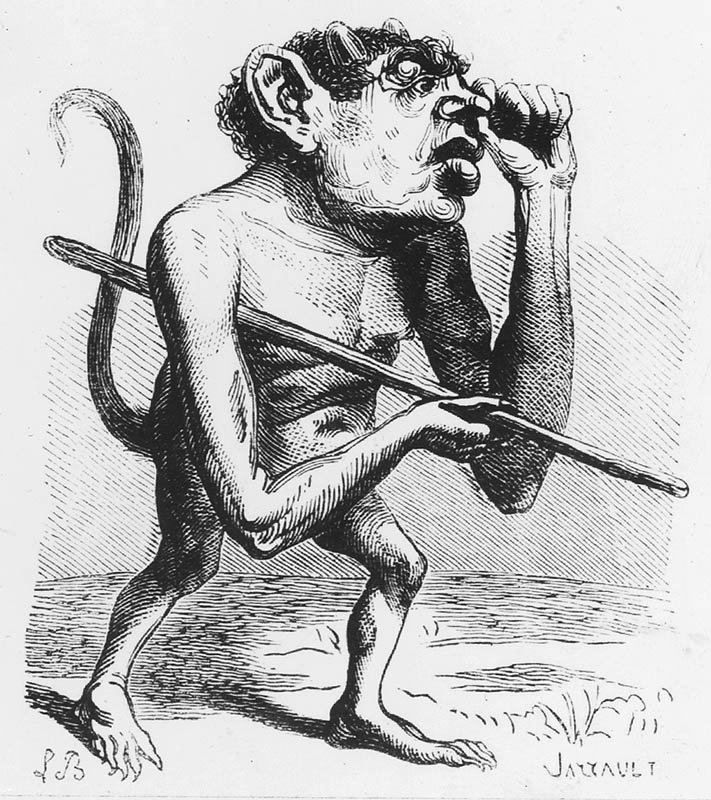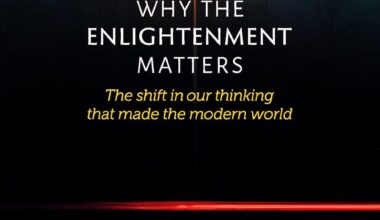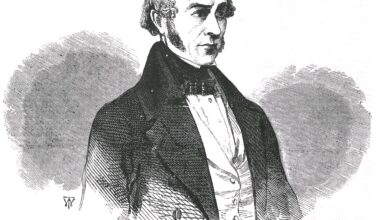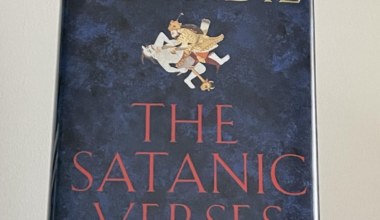London, 18—
The thick London fog rendered the day melancholic. No sunlight streamed through the hospital windows that might remind one of the pleasures of life. The friends who had brightened one’s days, the splendid memories of happier pastimes relished on sunny afternoons—all forgotten! Instead, it was only dour autumn grey, complemented by the steady pitter-patter of rain at the window.
The Rev. William Archibald Hamilton sat at the lonely bedside of an ailing man, aged some seven decades or more—the man himself was quite unsure of the precise figure.
In these times, which were frequent to him, Rev. Hamilton contemplated his own mortality. Much as he was a staunch believer, he could not bring himself to feel perfect joy at the departing of the souls, which were assuredly bound to spend eternity in the heavenly Afterlife. This ambivalence had been his conviction since his wife Sarah had passed decades ago—an event from which the reverend had never fully recovered.
What loved ones did these friendless patients look forward to greeting in the Afterlife? Hamilton wondered, sitting at the poor man’s bedside.
It was as he was laying his hands upon the bedridden man in prayer that the reverend caught sight of a dark figure in the corner of his eye. Hamilton ceased his prayer, diverting his glance. In a flash, the figure disappeared.
The reverend rose to follow, leaving the ailing man behind. Entering the long, dreary corridor, Hamilton spotted the figure.
‘Who passes there?’ cried Hamilton.
The sight of the figure, a short black-haired man with spindly arms and legs, dressed in a black cloak, chilled Hamilton to his core. When the man turned, he revealed a jaundiced, sinister complexion, with a protruding mouth. Hunched over and with beady eyes, the man could be no less than Evil.
The reverend’s fears overtook him. He halted his pursuit after only several steps, as the sinister man descended the remainder of the corridor to the exit.
But Hamilton observed a distinctive symbol upon the back of the man’s cloak. A series of lines, some curved and some straight, resembled a trumpet surrounded by a circle. The reverend hastily sketched the symbol in his notebook for later consultation.
#
Rev. Hamilton spent that evening in repose, as he did most evenings, reading by gentle candlelight before bed.
Tonight, it was the most recent issue of the Philosophical Transactions of the Royal Society. Some members of his Faith feared science. But not he! Was it not better, Hamilton believed, for the scientific enterprise to proclaim the Glory of God, the Majesty of Creation? To use the methods of science to supply the Faithful with Truth as they did battle with the pernicious Infidels was, to him, the highest of causes.
One article in particular captured Rev. Hamilton’s attention that evening. It was an article detailing a recent experiment to measure the weight of the human soul!
‘Simply ingenious,’ muttered Hamilton as he leafed through the pages.
One ambitious scientist, the reverend read in the Transactions, contemplated how to defend against the notion that the soul was but a fiction—as the Atheist party contended. How could the presence of a soul be detected? the scientist had mused. The soul assuredly had some kind of corporeal weight, and if this intuition were correct, it would be possible to measure the decrease in weight at the moment of death—the very moment when the soul left the body!
Yet how to measure it?
With great cunning, the scientist arranged to place the beds of ailing patients—those on the precipice of death—upon a large scale. The instruments were finely tuned such that even the most minuscule change in weight could be discerned.
And lo! the experiment revealed the slightest—but far from imperceptible—change in weight when the soul departed!
Praise the Lord! the reverend thought. Was this not proof against those infidels, those vile Sceptics, who dared to doubt the existence of a Soul?
As he climbed into bed, the reverend thought of his dear Wife and reflected happily on her existence in the Afterlife. Every memory of the pain and anguish he felt upon her death would surely be extinguished when the two at last reunited in Heaven.
#
It was several days later when Hamilton returned to call at the hospital. The poor bedridden man he had visited days ago was destined to pass soon.
As he walked down the familiar dreary hallway, into the section of the hospital where those aged and ill waited to die, he noticed the patient’s door ajar.
Hamilton quickened his pace, yet before he reached the room, the same sinister man as before rushed from it, pushing in front of him a black mechanical contraption on wheels. The contraption consisted of a tangled mess of cogs, chains, and cranks—the uses of which Hamilton could not discern.
‘Cursed fiend!’ the reverend shouted. ‘What business have you in there?’
The evil figure paid Hamilton no mind as he hurried down the corridor. Hamilton hastened to enter the room to observe the patient—only to find the poor fellow lying dead.
Sacrificing no time, the reverend bounded from the room and back into the hallway. ‘Vile enemy! Halt there!’ he cried in pursuit.
The squeaking of the wheels from the contraption was like a sharp instrument driven into Hamilton’s brain.
‘Halt!’ he called again.
The horrible man reached the end of the corridor and spun back toward the reverend, who stood several paces behind. The fiend’s unholy countenance made the reverend cease all movement. A set of black, unfeeling eyes glared back at Hamilton before the man threw open the door and exited.
A cold sweat dampened the reverend’s brow, his chest tightening and his legs shaking. He lumbered uneasily back to the room, leaning against the stone wall for balance, before finally reaching the room and depositing himself into a bedside chair.
‘Dear Lord, what pure evil have I witnessed?’
#
Thoughts of the godless fiend haunted the reverend’s dreams that night. Even in his waking moments, the man’s sinister expression filled Hamilton’s mind the moment his eyelids dropped.
It was only in the clear light of day that he determined which course to pursue. He would speak with his acquaintance, the Rev. Charles Maurice Davies.
Davies dabbled in Spiritualism, which Hamilton in truth found suspect if intriguing. Despite that, Hamilton knew that Davies was a trustworthy Christian parson like himself.
He sought Davies’s counsel on account of his knowledge of every manner of infidel sect in London’s underworld—every party of Blasphemer, Materialist, Vegetarian, Unitarian, and Atheist—the results of which being several books, variously entitled, Unorthodox London, HeterodoxLondon, &c.
Without doubt, Davies would know the identity of this cursed figure and the symbol which was found upon his cloak.
Davies blanched when the reverend opened his notebook to reveal his sketch of the sigil.
‘What is it?’ cried Hamilton upon seeing Davies’s pale visage. ‘Do you know its origin?’
Davies shook at the sight, struggling to compose himself. ‘Dear Hamilton, how do you come to know of this symbol? Those who adorn themselves with it are the worst of Men. The most terrible creatures known in our city. Their sect was not fit even for my pages!’
‘Tell me at once!’ said Hamilton. ‘I have encountered a man wearing this symbol on two occasions. He lurked around the hospital whilst I visited a patient. On another day, he exited my patient’s room pushing some kind of miserable contraption. Upon my inspection, the patient had died after the man’s visit! So, please, Davies, I beg of you to tell me. I must know!’
‘May God have mercy upon us,’ said Davies solemnly, ‘and do what He can for that fallen man’s soul! I shall tell you, Hamilton, but once I tell you, I wish never to hear of it again! These ghastly individuals! I wish them never to intrude upon my peaceable mind again.’
Rev. Hamilton agreed to the conditions and Davies recounted the story thusly:–
‘It began in May of 18— when I was nearing the end of my chronicles of the religious underworld of our city. I had been to meetings of Atheists and other non-believers. The Spiritualists I knew most intimately. But talk of an alternative meeting, of dissident Spiritualists who were by no means Christian, darkened my ears. Their name, I was told by a Spiritualist friend, was the Ronovéan Society.
‘In my writings I had only intended to give all groups a fair hearing—and nothing more. Aiming for comprehensiveness in my studies, I wished to learn more of this group. Had I not, already, described faithfully even Atheists and Secularists?
‘But Hamilton, I soon learned that there are those who not only deny our Lord; who deny His eternal benevolence!—But there are those who worship His Enemy! The enemy of all that is good and holy in our world!
‘When I told my Spiritualist friend that I intended to visit this group, to see them with my own eyes, he became frightened. He pleaded that I not go. They were, he said, too Evil to see in person.
‘I persisted in my undertaking, unwilling to heed my friend’s warning. At the time their meeting was to take place, I peered through the windows of their hall—but I departed after only several minutes. My dear Hamilton, they have strange rituals. Such that would shock even savages!
‘The group’s devotion is to Satan, and in particular to one of the minions who sits at his right hand in the governance of Hell. The minion is known by the name of Ronové. The group worships him. They desire his patronage and conspire to summon him in order to win his favour.
‘Ronové consumes human souls. And these worshippers: these devious villains! They attempt to harvest souls at the moment of death in order to provide sustenance to Ronové. Between the moment the soul leaves the body and when it arrives in Heaven, the fiends plot to capture it! They have developed machines by which the deed is performed!’
‘Good heavens! Machines?’ said Hamilton. ‘What compels them to commit such evil?’
‘They desire the wisdom and wit that he grants his followers—even at the price of becoming deeply ugly.’
The reverend sat in silence, unable to contemplate the depths of Man’s depravity! How far some stray from the path of all that is Good!
‘Where does this Ronovéan Society meet?’ said Hamilton, knowing the route he must follow, however treacherous.
‘Where do they meet?’ ejaculated Davies. ‘Why, surely you do not mean to pay them a visit!’
‘I wish to confront Evil, Davies. With the Lord at my side, I wish to confront these wicked foes!’
#
Rev. Davies supplied the location, however reluctantly, of the Society’s meeting hall. It was in Holborn, down a narrow alleyway off Chancery-lane.
That day saw no rain, yet the dense, damp fog obstructed one’s sight even several metres in front of one’s face. It was not yet sunset, but the day was already growing dark. Hamilton pulled his overcoat tight as he approached the unassuming building at the appointed time.
He concealed himself nearby the building, watching the ungodly worshippers, of both men and—what was worse—women enter, including the sinister man seen at the hospital.
After a dozen or so had filed inside, Hamilton crept close by and, like Davies, he crouched upon his knees to peer through a window.
There he saw the entire scene unfold: Sights abhorrent to Man and God! A Church service—to the Devil! It made a revolting mockery of our nation’s holy Faith!
Glowing candles tinted the horrible scene orange. Ghastly cloaked figures knelt before the altar, revealing the frightful sigil of Ronové upon their reverse. Twisted organ music resonated even outside the window—but with its jarring harshness it had not the beauty of a Christian composition. The motley throngs chanted ever loudly as a sinister priest made strange incantations upon the altar.
At once, a flash of light, brighter than any Rev. Hamilton had before seen, made him recoil from the window.
When he stood again, his eyes still stinging from the flash, he saw a sight that etched itself forever into his mind: the wicked demon Ronové himself standing upon the altar.
Hamilton could only stare in horror. Ronové stood taller than the height of two Men. He was Human in form, but possessed two horns, elongated arms and legs, pale grey skin, and a tail protruding from his backside. There was nothing to cover the Demon’s nakedness except the staff he wielded. He possessed a fierce countenance—and those eyes! Such sinister yellow eyes!
Ronové looked displeased as his gaze passed over the depraved congregation. Hamilton dared not turn from the scene, however much he wished to. The worshippers hastily pushed their mechanical apparatuses before the Demon and each began furiously turning a crank on their respective apparatus, thereby opening one of its compartments.
As they did, Ronové opened his great mouth—far greater than any other creature could. Translucent Souls streamed from the openings in the contraptions and into his waiting mouth. His belly grew in size—such that he appeared almost as if pregnant with child!—as he greedily consumed those souls destined for God.
The reverend’s legs could no longer hold him, so weak they had become. He collapsed to the ground as he lost consciousness from the horrible image.
#
Rev. Hamilton awakened upon the hard ground to the morning brightness. He looked around him, confused, before the memories of the previous night flooded back.
‘Dear Lord, tell me that what I witnessed last night was but a dream!’ he prayed silently. But in his heart he knew it was not.
Hamilton climbed unsteadily to his feet and peered through the same window. The room was now deserted. No trace remained of Ronové or his sinister apostles.
In the coming days, he could think of nothing but the horrible image of Ronové. His protruding belly, full of Christian souls! He tried with all of his might, but lo, the memory could not be effaced from his brain.
Hamilton knew what he must do. He paid a visit to Holborn Station—the Division headquarters of the Metropolitan Police. A parson such as Hamilton was the very last person who might be found there, but upon his entrance, he explained his situation to a Constable. After initial disbelief, the Constable agreed to relate the story to his superiors. Finding the story credible and reasoning that a respectable reverend like Hamilton was not someone who would deceive, they escorted Hamilton with due haste to the Superintendent’s chamber, where Hamilton recounted the story in its fullness. After listening carefully, Superintendent Thomas Henry Draper assured him that he would put his best men to work on the case.
‘Fear not, reverend,’ said Draper, ‘the vile scoundrels will be apprehended in short order.’
Hamilton exited contentedly, yet until such time when the Soul Stealers would no longer be free to perform their mischief, he resolved that he would spend every waking moment among the sick and dying! He would be a guardian against the Soul Stealers! A defender of the Lord’s souls!
Night and day, he passed time at the bedside of the ailing whilst awaiting the results of the Police investigation. As he watched over a dying woman, he was interrupted by a coughing fit, the likes of which had become more frequent these past days—undoubtedly a sign of overwork. This particular fit lasted nearly a minute and Hamilton gasped for breath when it at last ceased.
But Hamilton had always considered himself to possess a strong constitution, and so he thought little of it. And he could not abandon these poor patients who lay on their deathbeds in their time of need. These sick! These dying! Whenever he considered taking leave, the thought of Ronové consuming their Christian souls only made Hamilton grow more steadfast in his commitment.
Friends warned him that he mustn’t work so much, though Hamilton insisted he was perfectly well.
#
It had been three weeks since the encounter. Rev. Hamilton’s health had weakened further and he was beginning to lose hope—when a notice arrived at the hospital for him. Such was the time he spent there that it had become more practical to address letters for Hamilton to that location.
This piece of correspondence came from the police Superintendent:–
Rev. William Archibald Hamilton:
Forgive the brevity of this message. This short missive is to express our gratitude for your assistance. At the building which you identified, we have apprehended ten individuals on suspicion of blasphemy. We believe that they are the ones behind the hideous spectacle you witnessed some evenings ago. Rest assured, we shall see that they are prosecuted to the full extent of the law.
Yours,
Superintendent Thomas Henry Draper
Hamilton let the letter fall from his hands and into his lap with relief. He felt tears forming in his eyes, so trying had the events of the past weeks been. At long last, those horrible fiends would be brought to justice and his nightmare would be over!
Upon reception of the letter, the reverend’s vigour was renewed. Yet as he sat next to a patient in the hospital, penning a letter to his friend Davies informing him of the welcome news, another coughing fit overtook him. When it ceased, Hamilton drew away his handkerchief from his mouth to find it spotted with blood.
This was not the first time Hamilton had noticed blood after one of his fits, yet he had always been careful to conceal the evidence. This time, however, a nurse passing through the ward sighted the blood, and made haste to call upon the doctor.
After some inspection, the doctor informed Hamilton that it was Consumption. There had been a number of patients suffering from the malady on that ward, the doctor explained, and this was assuredly whence he had contracted it.
When Hamilton insisted on returning to his work, the doctor strictly forbade it. ‘You are the one who must rest,’ Hamilton was informed. ‘Reverend, I’m afraid you are a gravely ill man.’
#
His condition worsened quickly: the Rev. Hamilton, once a friend to the downtrodden, to the elderly, to the invalids, to the ill, was now himself confined to a hospital bed. There was little the doctors could do. The prognosis was not favourable, he was told.
The days passed as if in a haze. Only half alert, Hamilton hardly noticed the doctors speaking to him, saying that it would not be long now, good reverend.
Contented that the threat from the Soul Stealers was no more, his mind thought of Sarah, sweet, angelic Sarah:—and how they would soon be reunited in the Afterlife. A feeling of bliss came over him at the thought.
So weak now was the reverend that his correspondence was held back from him on doctor’s orders. A hastily scrawled note from his friend Davies therefore never reached him. It had come to Davies’s notice, the letter explained, that the Ronovéan Society’s influence extended much farther than he had previously realised. Even to within the Metropolitan Police. No one from that previously reputable organisation, Davies wrote in increasingly frantic handwriting, must be trusted under any circumstances whatever.
#
Hamilton’s Final Day at last came. The dear reverend felt himself slipping away. His eyelids grew heavy. A squeaking of rusty wheels in the hallway barely pierced his consciousness.
‘Take me, Lord. I am ready to enter Your heavenly kingdom,’ he muttered, delirious, into his empty room. ‘I am ready to enter paradise and be with Sarah for the rest of eternity…’
Just then, in the final few moments before his soul left his body, Hamilton opened his eyes. He was too frail even to scream—to emit bodily the horror generated within him at what he saw.
By his bedside was that sinister disciple of Ronové, readying his contraption.









Your email address will not be published. Comments are subject to our Community Guidelines. Required fields are marked *
Donate